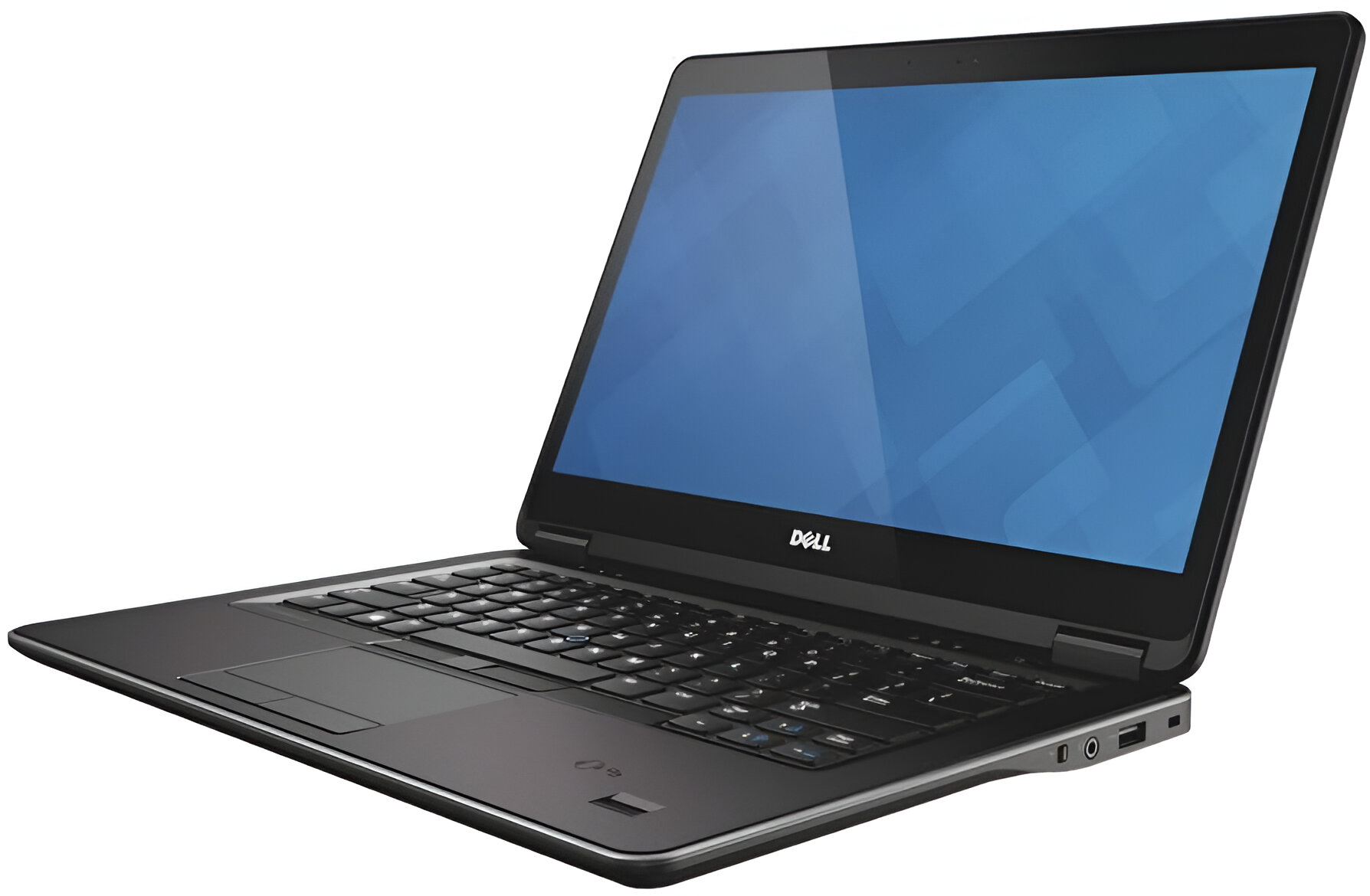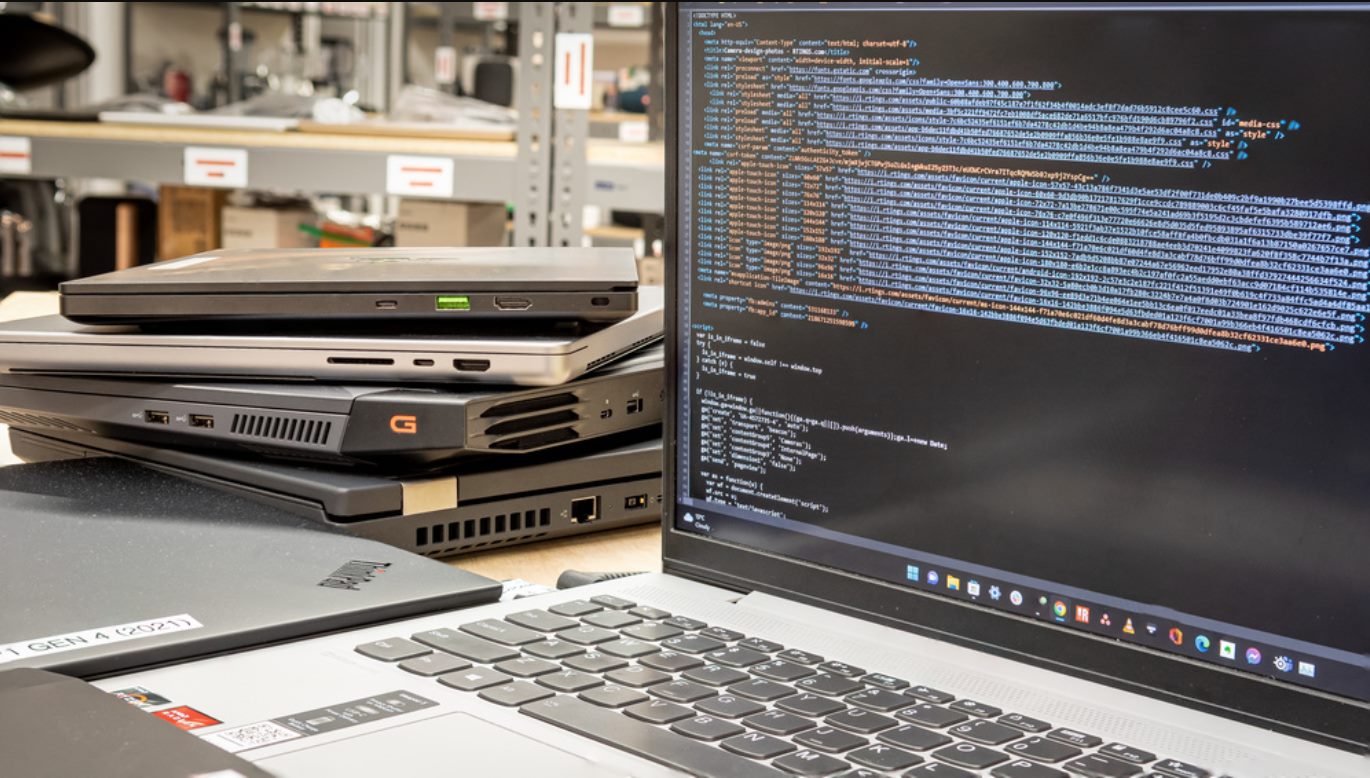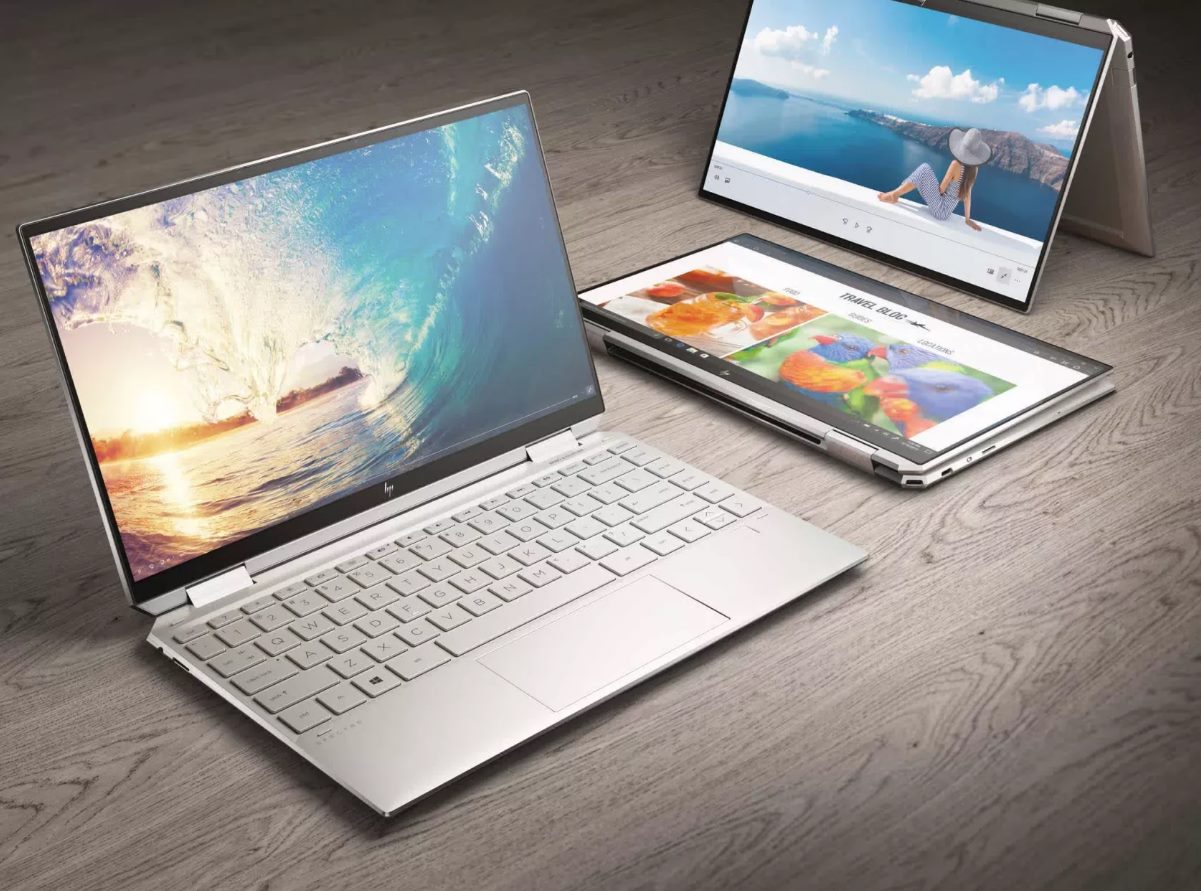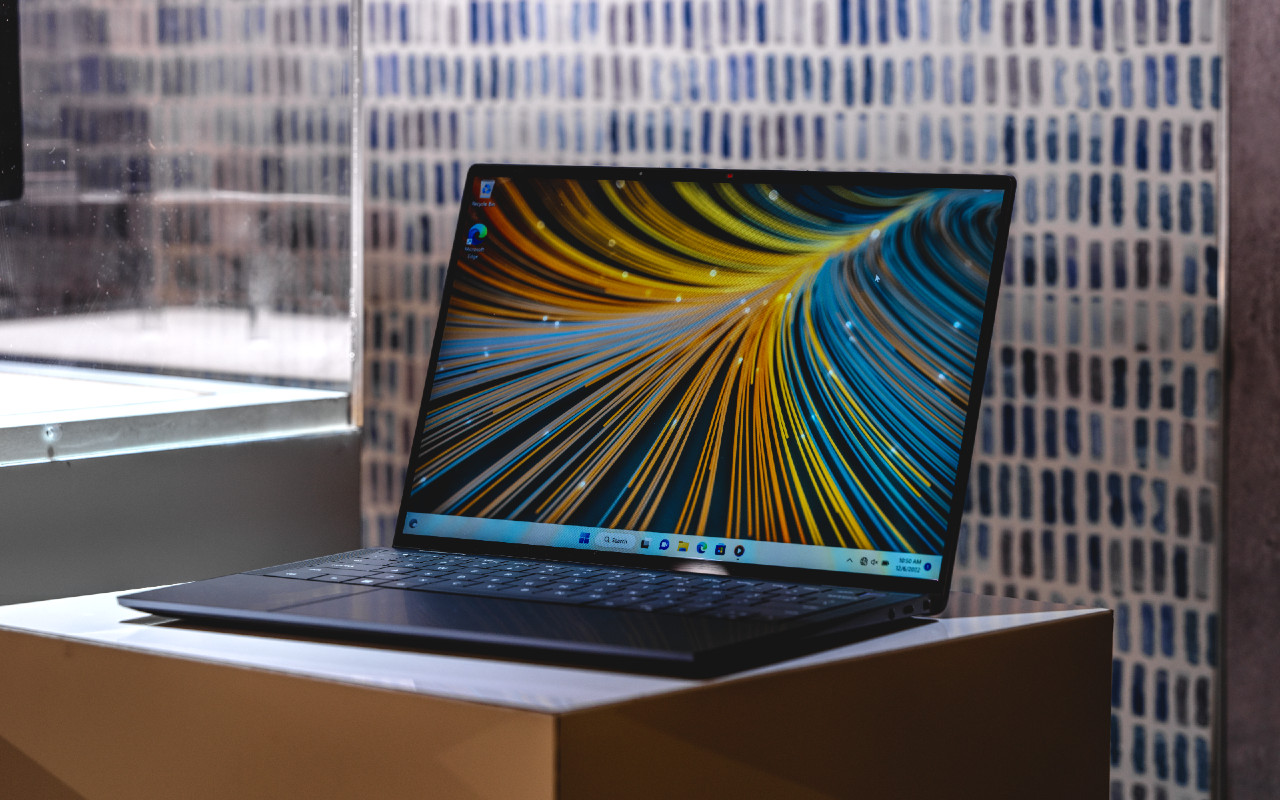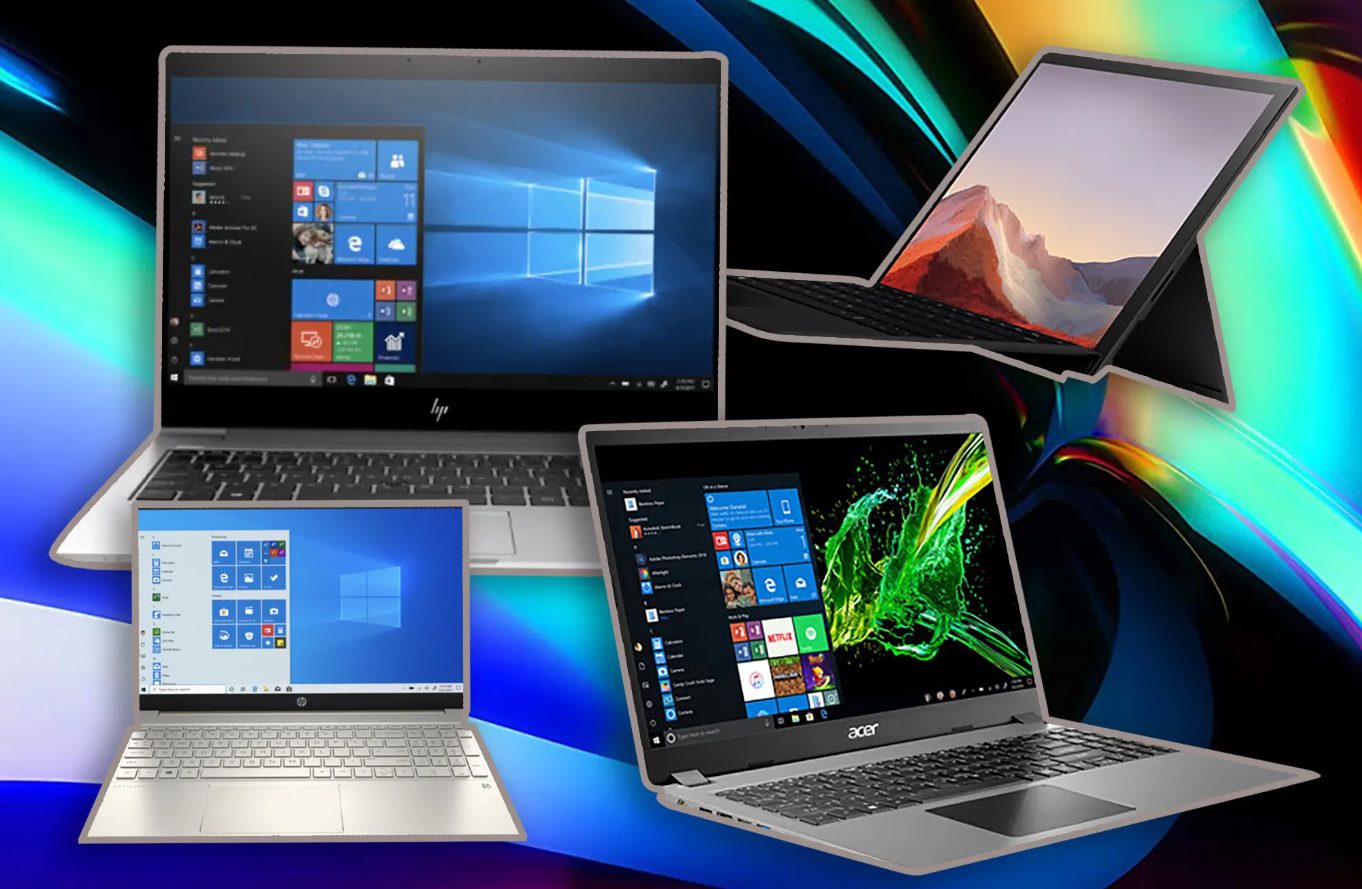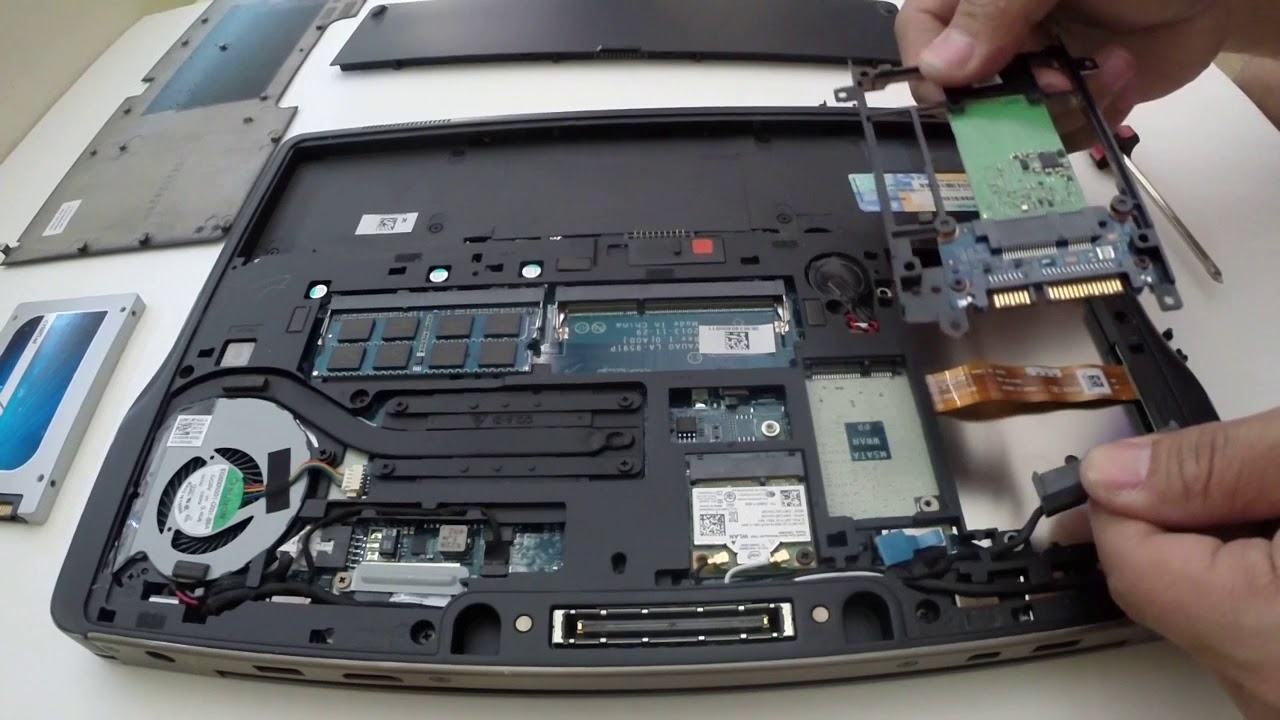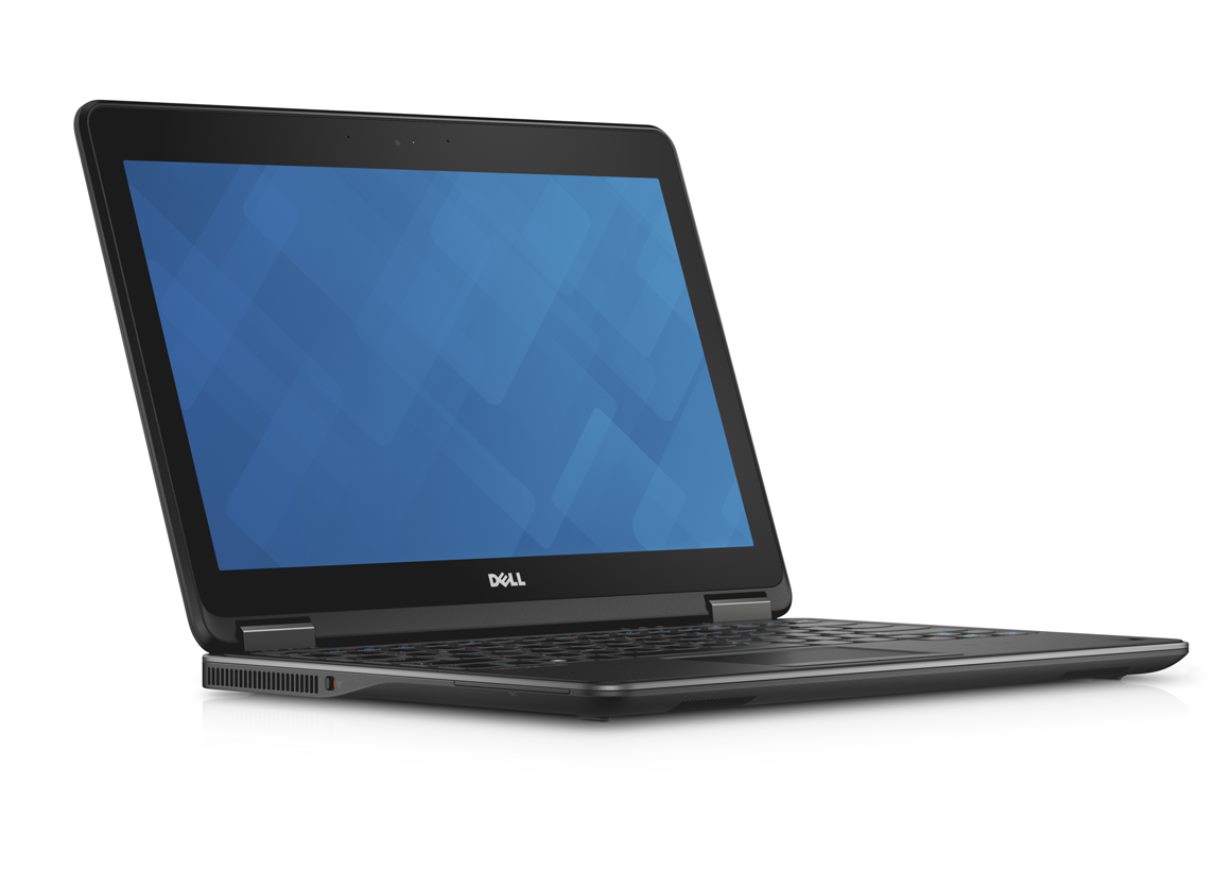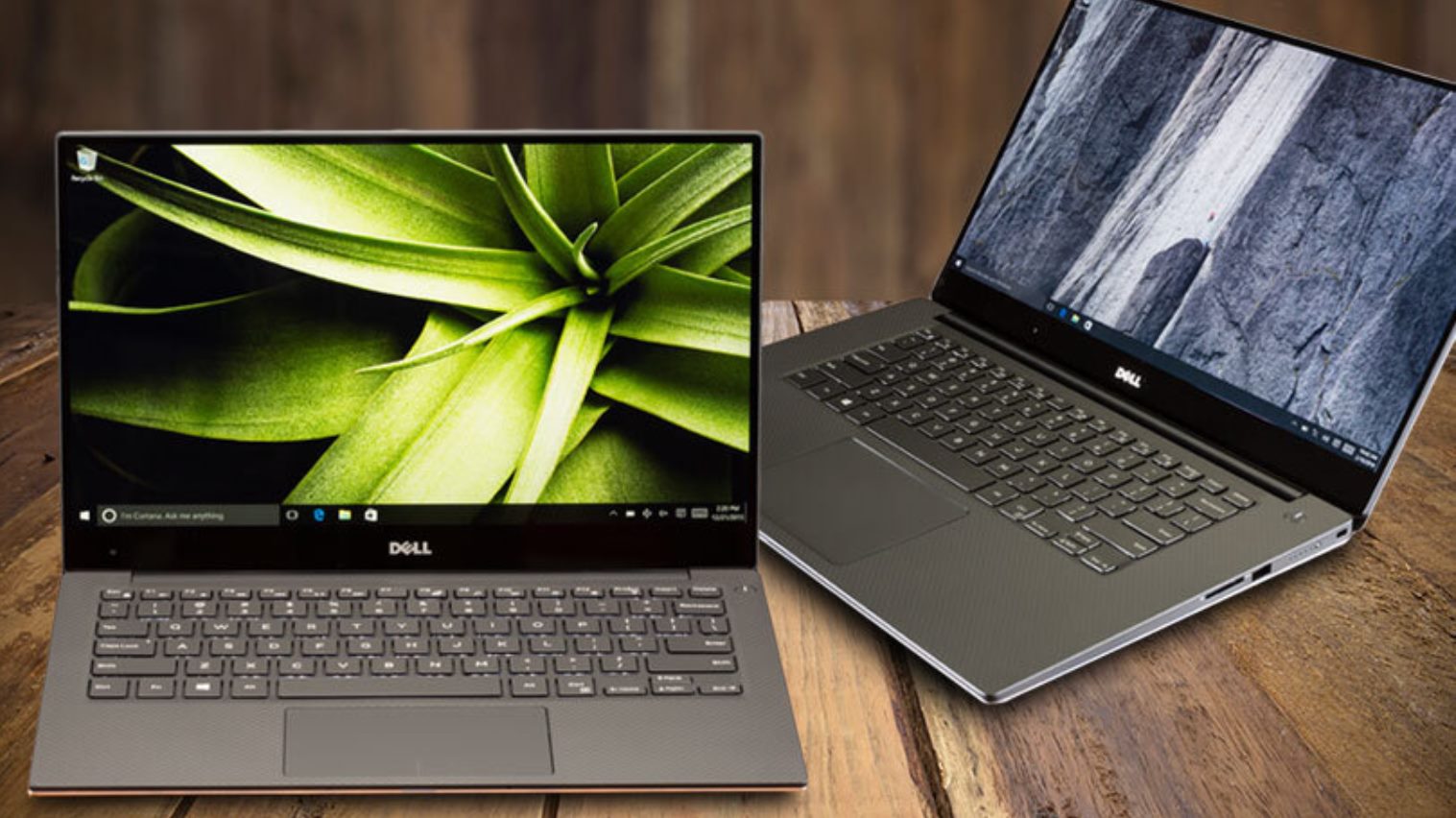Introduction
Welcome to our in-depth exploration of the weight of the Dell Latitude E7440 14 Ultrabook. If you’re in the market for a new Ultrabook, you’ve probably come across the term “weight” during your research. But what exactly does it mean and why is it important? In this article, we’ll dive into the significance of weight when it comes to Ultrabooks like the Dell Latitude E7440 and how it can impact your overall user experience.
The weight of a laptop is an essential factor to consider as it directly influences its portability and ease of use. While many other specifications such as processor speed, RAM, and storage capacity are crucial, the weight determines whether the device can be easily carried around and used on the go. A lighter Ultrabook can be a game-changer, particularly for professionals who are constantly on the move, students who need to take their laptops to classes, or frequent travelers who want a reliable and lightweight companion.
In this article, we’ll not only explore the weight of the Dell Latitude E7440 14 Ultrabook but also compare it to other Ultrabooks available in the market. We’ll delve into the design features that contribute to its weight and discuss the effects that weight can have on portability and ease of use. Additionally, we’ll provide you with some tips to help you choose the right weight for your individual needs and preferences. So, without further ado, let’s dive into the world of ultraportable computing with the Dell Latitude E7440.
The Importance of Weight in an Ultrabook
When it comes to choosing an Ultrabook, weight plays a crucial role in determining the device’s overall usability and convenience. Whether you’re a busy professional, a student, or a frequent traveler, the weight of your laptop can significantly impact your daily routine. Let’s explore why weight is such an important consideration in an Ultrabook.
Portability is perhaps the most obvious reason why weight matters. A lightweight Ultrabook allows you to effortlessly carry it in your bag or backpack wherever you go. Gone are the days when you had to carry around bulky and heavyweight laptops. With an Ultrabook like the Dell Latitude E7440, you can enjoy a sleek and lightweight device that fits comfortably into your bag, minimizing strain on your shoulders and back.
Weight also affects the ease of use of an Ultrabook. Imagine having to use a heavy laptop for extended periods. It would not only be physically tiring but also hinder your productivity. On the contrary, a lightweight Ultrabook offers a comfortable and stress-free experience, enabling you to work or study for long hours without feeling weighed down.
In addition to portability and ease of use, weight can also be a significant factor in situations where you need to use your laptop on the go. For travelers, having a lightweight Ultrabook means having a reliable companion that won’t add unnecessary bulk to their luggage. Whether you’re navigating through busy airports, commuting on public transport, or attending business meetings, a lightweight laptop like the Dell Latitude E7440 makes your journey smoother and more enjoyable.
Besides the practical aspects, weight can also be a reflection of the build quality and materials used in an Ultrabook. A lightweight laptop often indicates a sleek and slim design, made possible through the use of durable and lightweight materials like aluminum or carbon fiber. These materials not only reduce weight but also enhance the device’s overall aesthetics and durability.
Overall, the weight of an Ultrabook like the Dell Latitude E7440 is a critical factor to consider before making your purchasing decision. It impacts the device’s portability, ease of use, and overall user experience. By opting for a lightweight Ultrabook, you can enjoy the perfect balance between performance and mobility, making your computing tasks seamless and hassle-free. So, keep weight in mind when choosing your next Ultrabook to ensure a comfortable and efficient laptop experience.
Specifications of the Dell Latitude E7440 14 Ultrabook
Before delving further into the weight of the Dell Latitude E7440 14 Ultrabook, let’s take a closer look at its specifications. Understanding the technical aspects of this device will give us a better understanding of how its weight fits into the overall package.
The Dell Latitude E7440 is a 14-inch Ultrabook that combines performance, durability, and portability. It is powered by an Intel Core i5 or i7 processor, providing ample processing power for multitasking and demanding applications. With up to 16GB of RAM, you can expect smooth and efficient performance for everyday tasks, as well as more resource-intensive activities.
The device features a 14-inch Full HD display, offering crisp and vibrant visuals that enhance your multimedia experience. Whether you’re working on spreadsheets, watching videos, or editing photos, the display delivers sharp details and accurate colors.
In terms of storage, the Dell Latitude E7440 comes with various options, including solid-state drives (SSDs) that offer faster boot times and snappy performance. Depending on your storage needs, you can choose between 128GB, 256GB, or 512GB capacities, allowing you to store your files, documents, and media without running out of space.
In terms of connectivity, the Dell Latitude E7440 offers a range of options to ensure you stay connected wherever you go. It features USB 3.0 ports for fast data transfer, an HDMI port for connecting to external displays, and a built-in SD card reader for easy access to your media. Additionally, it supports Bluetooth and Wi-Fi, enabling you to connect wirelessly to peripherals and access the internet without hassle.
When it comes to security, the Dell Latitude E7440 provides several features to protect your data and privacy. It includes a fingerprint reader and a smart card reader for secure authentication. Additionally, it offers optional features such as a Trusted Platform Module (TPM) and Dell Data Protection for enhanced security and encryption.
Now that we have explored the specifications of the Dell Latitude E7440, we can better appreciate its weight in relation to its performance and features. In the next section, we will compare its weight with other Ultrabooks to see how it stacks up in terms of portability and ease of use.
Weight Comparison with Other Ultrabooks
One of the key aspects of evaluating the weight of an Ultrabook is comparing it to other similar devices in the market. Let’s take a look at how the weight of the Dell Latitude E7440 14 Ultrabook stacks up against its competitors.
The Dell Latitude E7440 is designed to be lightweight and portable, making it ideal for users who are constantly on the move. With a starting weight of just 3.6 pounds (1.63 kg), it is noticeably lighter than many other 14-inch Ultrabooks in its class. This reduced weight allows for easy transportation and adds to the overall convenience of using the device.
Comparing the Dell Latitude E7440 with other popular Ultrabooks, we find that it fares quite well in terms of weight. For instance, the Lenovo ThinkPad X1 Carbon, another popular 14-inch Ultrabook, weighs in at around 2.83 pounds (1.28 kg). While it is slightly lighter, the difference in weight may not be significant enough to sway your decision unless every ounce counts for your specific use case.
If we turn our attention to the MacBook Air, Apple’s offering in the Ultrabook category, we find that the 13-inch model weighs around 2.8 pounds (1.27 kg). While this is lighter than the Dell Latitude E7440, it’s important to note that the MacBook Air has a smaller screen size and may not be directly comparable in terms of specifications and functionality.
It’s worth mentioning that weight is just one factor to consider when comparing Ultrabooks. The overall build quality, performance, battery life, and other features should also be taken into account. However, when it comes to portability, a lighter device like the Dell Latitude E7440 can make a tangible difference, especially for users who prioritize mobility and easy handling.
Ultimately, the decision on which Ultrabook to choose should be based on your specific needs and preferences. While weight is an important consideration, it should be balanced with other factors to find the right balance between performance and portability.
Now that we have compared the weight of the Dell Latitude E7440 with other Ultrabooks, let’s dive deeper into the design features that contribute to its weight in the next section.
Design Features that Contribute to Weight
The weight of an Ultrabook is influenced by various design features and components used in its construction. Understanding these factors can give us insight into why a particular device weighs what it does. Let’s explore the design features of the Dell Latitude E7440 14 Ultrabook that contribute to its weight.
One of the primary factors impacting the weight of an Ultrabook is the choice of materials. The Dell Latitude E7440 utilizes a combination of lightweight materials, including high-quality aluminum for its chassis. Aluminum is known for its durability and strength, while still being relatively lightweight. However, it’s important to note that the use of premium materials like aluminum can lead to a slightly higher weight compared to laptops made from less robust materials.
In addition to the choice of materials, the Dell Latitude E7440 incorporates a range of components that can affect its weight. These components include the battery, motherboard, display, keyboard, and other internal hardware. While manufacturers strive to create devices that are as lightweight as possible, certain components may contribute to a slightly higher overall weight.
The Dell Latitude E7440 also features a 14-inch display, which can impact the weight of the device. While larger displays provide an enhanced viewing experience, they typically require more durable framework and larger protective coverings, which can add to the overall weight. However, it’s important to strike a balance between screen size and weight to ensure a comfortable and usable device.
Furthermore, the Dell Latitude E7440 incorporates a range of connectivity options and ports, such as USB, HDMI, and card readers. While these ports are essential for expanding the functionality of the device, they do add to the weight. Manufacturers must strike a balance between providing the necessary connectivity options without compromising on the device’s overall weight and portability.
It’s worth noting that while the design features of a laptop contribute to its weight, they also have a significant impact on other aspects, such as durability, aesthetics, and overall user experience. Therefore, it’s essential for users to consider their priorities and find the right balance between weight and other desirable features.
Now that we understand the design features that contribute to the weight of the Dell Latitude E7440, let’s discuss the impact of weight on portability and ease of use in the next section.
Impact of Weight on Portability and Ease of Use
The weight of an Ultrabook has a significant impact on its portability and ease of use. Let’s explore how the weight of the Dell Latitude E7440 14 Ultrabook affects these important aspects of the user experience.
Portability is perhaps the most obvious impact of weight on an Ultrabook. A lighter device, such as the Dell Latitude E7440, makes it easier to carry the laptop with you wherever you go. Whether you’re commuting to work or traveling for business, a lightweight Ultrabook ensures that you don’t feel burdened by the weight of your device. This increased portability allows you to easily slip the laptop into your bag or backpack, making it highly convenient and practical for users on the go.
The weight of the Dell Latitude E7440 also impacts how easily you can use the laptop for extended periods. A heavier device can lead to physical fatigue and strain on your wrists, especially if you frequently type or use the trackpad. However, with a lightweight Ultrabook like the Dell Latitude E7440, you can enjoy a more comfortable user experience, even during long hours of work or study. This reduces the risk of repetitive stress injuries and allows for greater productivity with minimal discomfort.
Furthermore, the weight of an Ultrabook affects how easily you can use it in different environments. With a lighter laptop, you can effortlessly transition between workspaces, whether you’re moving from one room to another in your home or from one coffee shop to another. This flexibility adds to the overall usability of the device and ensures that you can remain productive regardless of your location.
The impact of weight on ease of use extends beyond physical comfort; it also influences the setup and positioning of the laptop. A lighter Ultrabook is easier to position on your lap or on various surfaces, making it more adaptable to your preferred working or viewing angles. This enhances the overall ergonomics of the device, improving your posture and reducing the risk of strain-related discomfort.
Ultimately, the weight of the Dell Latitude E7440 plays a crucial role in determining its portability and ease of use. By choosing a lightweight Ultrabook, you can enjoy the freedom of mobility, comfortable use for extended periods, and flexibility in different environments. These factors contribute to a seamless and enjoyable user experience, making the Dell Latitude E7440 an ideal choice for those who prioritize convenience and usability.
Now that we’ve explored the impact of weight on portability and ease of use, let’s move on to the next section, where we’ll provide some tips to help you choose the right weight for your specific needs.
Tips for Choosing the Right Weight for Your Needs
When it comes to selecting an Ultrabook, finding the right weight that suits your needs is crucial. Here are some essential tips to help you choose the perfect weight for your specific requirements.
1. Consider your usage: Think about how you will primarily use the Ultrabook. If you’re constantly on the move, choose a lighter weight that ensures portability without sacrificing performance. If you mainly use your laptop in one location, weight may be less of a priority.
2. Assess your mobility needs: If you often travel or need to carry your laptop for long periods, opt for a lighter Ultrabook that won’t be a burden. However, if you’ll primarily use it on a desk or stationary position, a slightly heavier model may offer additional features and performance.
3. Think about screen size: Larger screens often add to the overall weight of an Ultrabook. Consider whether you need a larger display or if a smaller, more lightweight option would suffice for your tasks.
4. Balance weight with performance: While a lightweight Ultrabook is desirable for portability, ensure it still meets your performance requirements. Don’t compromise on processing power, memory, and storage capacity just to achieve a minimal weight.
5. Test it out: Whenever possible, visit a store or try out different Ultrabooks in person. Get a feel for their weight and how easily they can be carried and used. This hands-on experience can help you make a more informed decision.
6. Consider build quality: A well-built Ultrabook using premium materials may be slightly heavier but offers added durability and longevity. If you prioritize a reliable and robust device, a slightly higher weight could be worth it.
7. Read reviews and user experiences: Look for reviews by experts and fellow users who have similar usage patterns. Their insights can provide valuable information and help you gauge the overall satisfaction with the weight and portability of specific Ultrabooks.
By considering these tips and thoroughly evaluating your needs, you can make an informed decision regarding the weight of your Ultrabook. Remember, there is no one-size-fits-all approach, so finding the right balance between weight, performance, and portability is essential to ensure an enjoyable user experience.
Now that you have a better understanding of the factors to consider when choosing the right weight, let’s move on to the concluding section of this article.
Conclusion
The weight of an Ultrabook, such as the Dell Latitude E7440 14, is an important consideration that can greatly impact your overall user experience. It affects the device’s portability, ease of use, and even its design and build quality. After exploring the weight of the Dell Latitude E7440 and its significance, as well as comparing it to other Ultrabooks, considering design features that contribute to weight, and analyzing the impact on portability and ease of use, we can confidently say that weight is a crucial factor to consider when choosing an Ultrabook.
When selecting an Ultrabook, it’s essential to strike a balance between weight and other factors such as performance, battery life, and build quality. Consider your own usage patterns, mobility needs, and preferences to determine the ideal weight for your specific requirements. Whether you prioritize a lightweight device for easy transport or a slightly heavier model with enhanced features, finding the right weight ensures that you have a comfortable and convenient user experience.
In the end, the Dell Latitude E7440 and other Ultrabooks provide a range of options with varying weights to cater to different user needs. By considering the tips provided in this article, you can make an informed decision and select an Ultrabook that perfectly aligns with your workflow, portability needs, and personal preferences.
Remember, every ounce counts when it comes to the weight of your Ultrabook, so take the time to evaluate your priorities, test out different devices, and read reviews to ensure that you find the perfect balance between weight, performance, and portability for an exceptional computing experience.







